It's autumn break now in schools in our region. My wife found a pretty good offer online: a ferry + hotel package for the three of us for two nights at Meriton Park Inn, a spa hotel adjacent to the Old Town of Tallinn. I took three days off. The price of the package was only €261 for the three of us.
Tallinn is the capital city of Estonia. Its population is about 434,000. About one third of all Estonians live in Tallinn. It is about 85 km to the southwest of Helsinki on the opposite side of the Gulf of Finland (of the Baltic Sea). The ferry trip takes about two and a half hours.
It had been 18 years since my last visit to Tallinn. A friend of mine and I visited it in 2001. At that time, it looked like some external signs of the Soviet times were still present in the city center. My friend and I ventured off to the largest suburb of Tallinn, Lasnamäe, that has a population of about 116,000. We got off the bus a couple of kilometers before our destination. We walked through a run-down industrial area that looked and felt eerily like that in Andrei Tarkovsky's film Stalker. I later learned that the film had actually been shot in an industrial area somewhere in Estonia. Then all of a sudden, a hamburger restaurant belonging to the large Finnish chain Hesburger appeared. All this felt a bit surreal. After the re-establishment of Estonian independence in 1991, Estonia has developed quite a bit economically. Its GDP (Purchasing Power Parity) is three quarters of that of Finland that was able to stop the Soviet invasion and was spared of the occupation and annexation into the Soviet Union after the Molotov-Ribbentrop pact. The difference in the nominal GDP per capita is larger, which explains the fact that it's easier to find good value for your money as a tourist in Estonia.
This time my family and I did not venture into the suburbs but I got the impression that a lot of new had been built. The medieval Old Town is in excellent condition as it should be as it is a Unesco World Heritage site.
I'll now show some selected shots of the first day. The first pictures are of Helsinki port and archipelago.
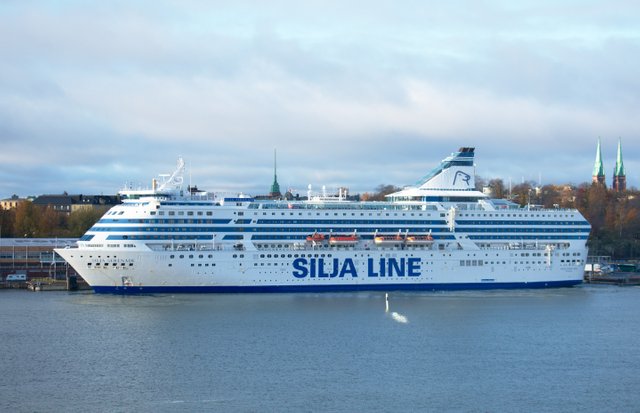
This is one of the Sweden ferries.
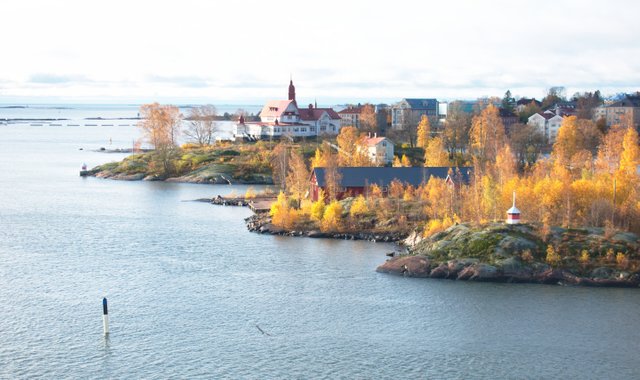
The trees in our region about 100 km north are clearly more barren.
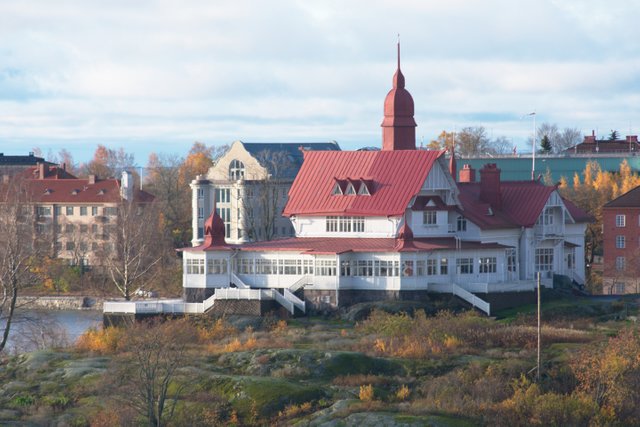
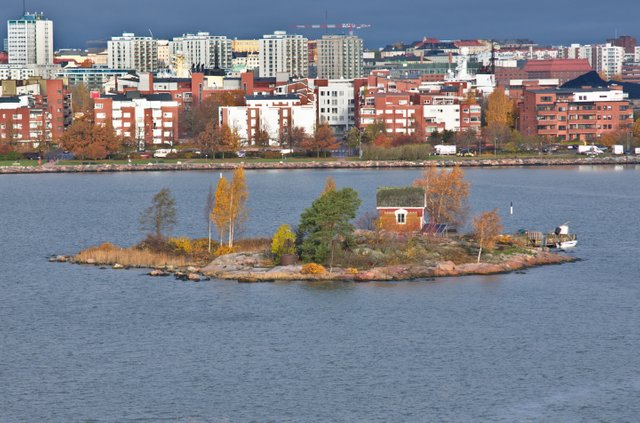
That's one heck of a place for a summer cabin. It's pretty close to the city but there isn't much privacy there.
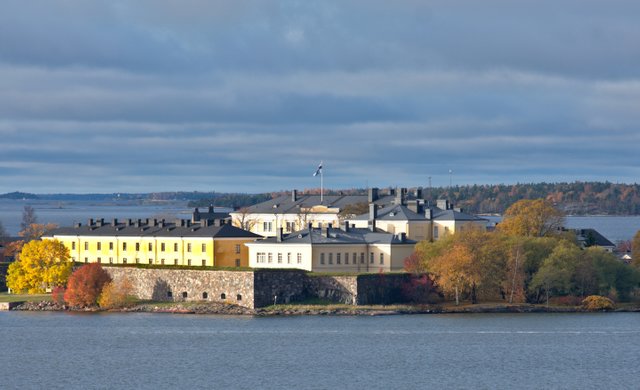
The Naval Academy on one of the fortified islands of Suomenlinna
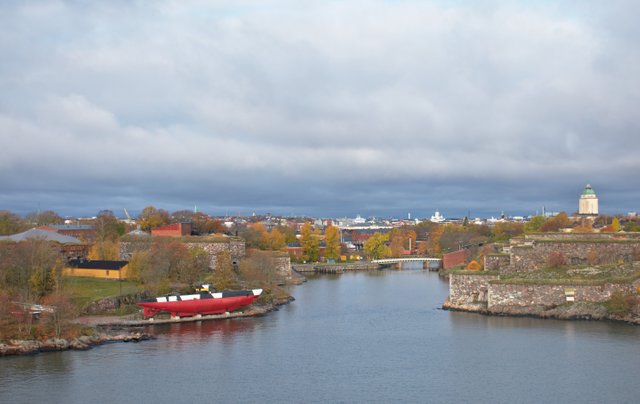
The channel between the two main islands of Suomenlinna
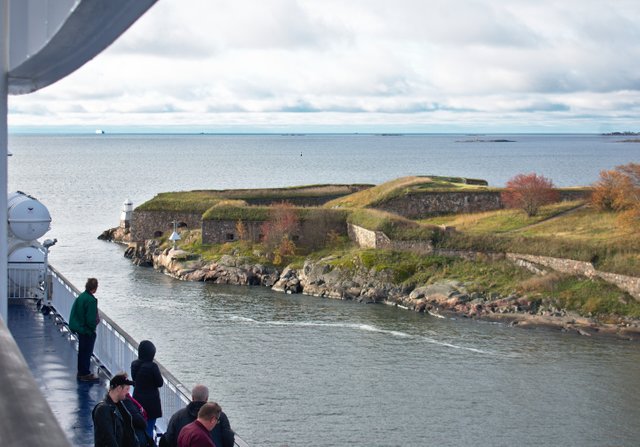
Kustaanmiekka, a narrow straight between the southernmost of island of Suomenlinna and another island.
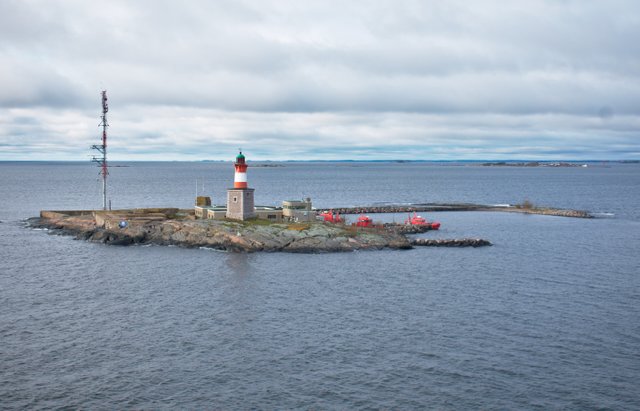
The island of Harmaja and the lighthouse on it
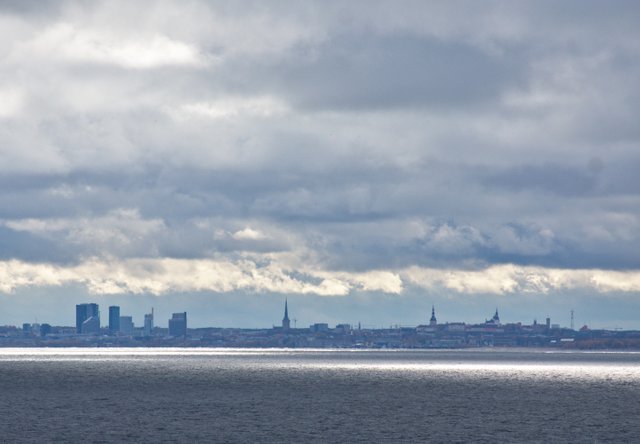
Tallinn skyline from the sea
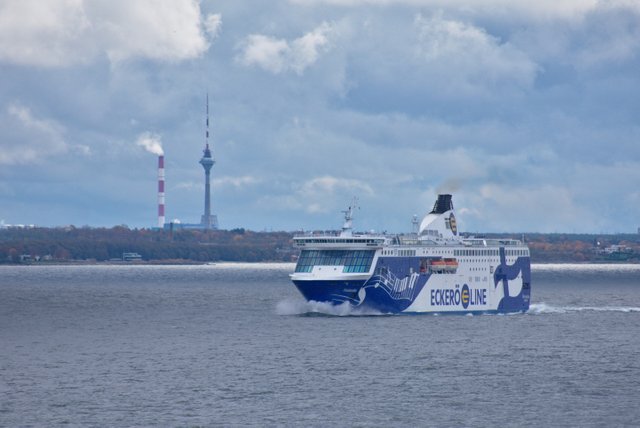
The famous television tower in the suburb of Pirita and an oncoming passenger ferry
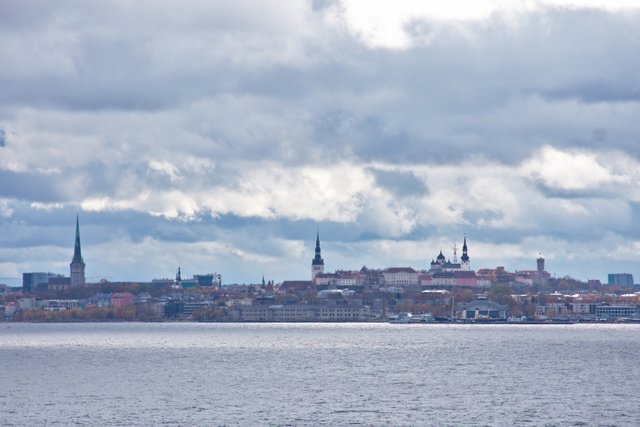
The entire Old Town from the sea. On the right hand side, you can see Toompea Hill where the feudal lords used to live in the medieval period and that has been the administrative area ever since. The lower town on the left was for the merchants and the craftsmen.
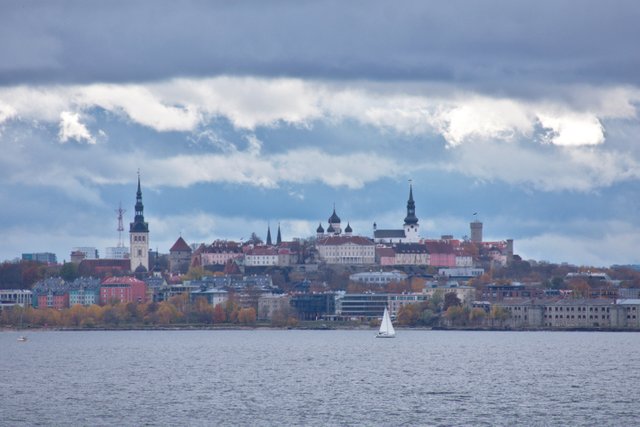
Toompea Hill
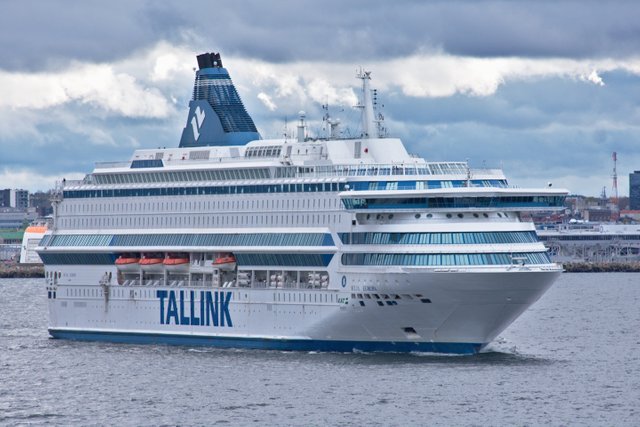
Approaching the Old Town harbour
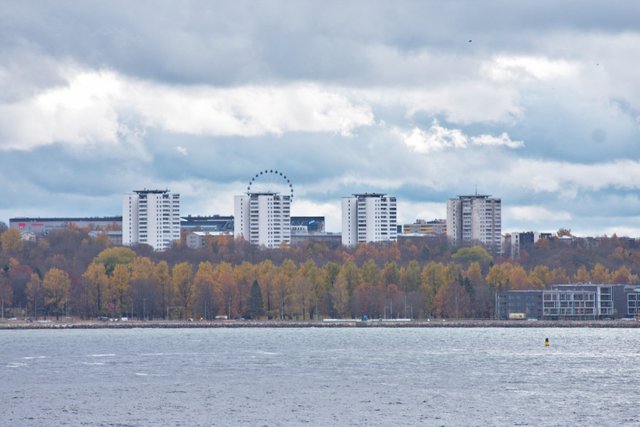
A modern suburb
After arrival in Tallinn, we decided to walk through the Old Town to get to our hotel a few kilometers to the southwest.
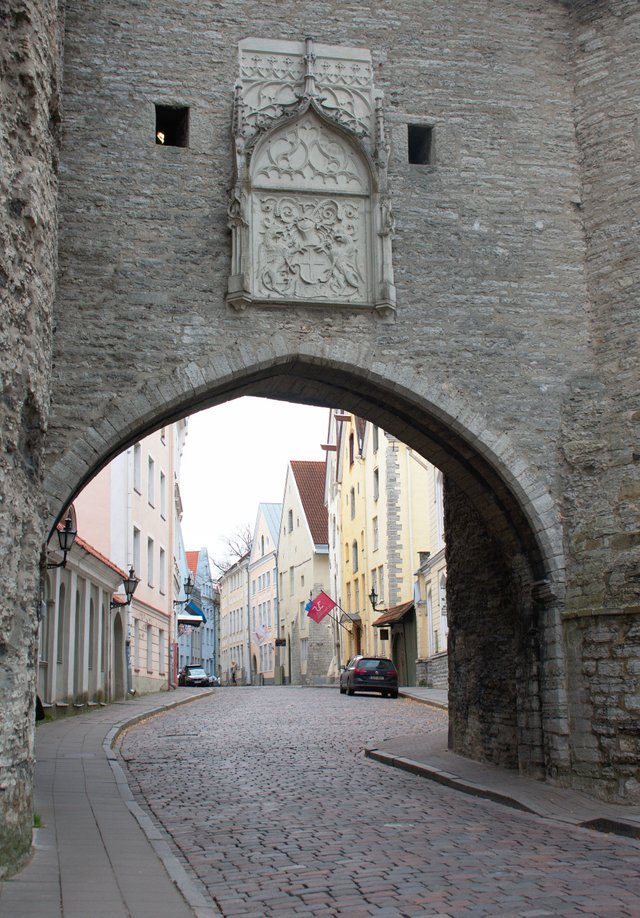
Entering the Old Town
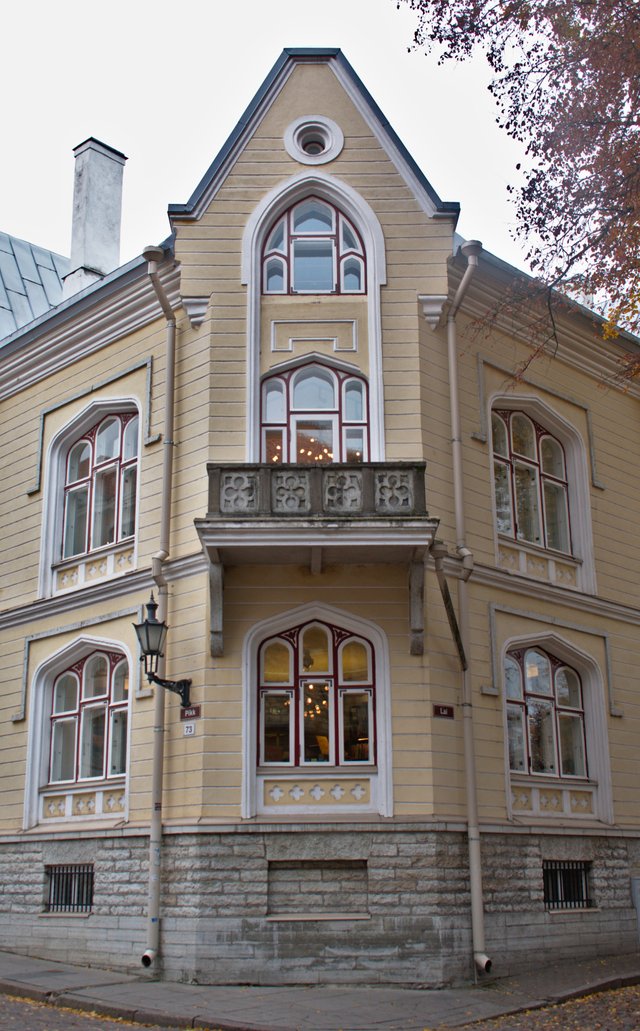
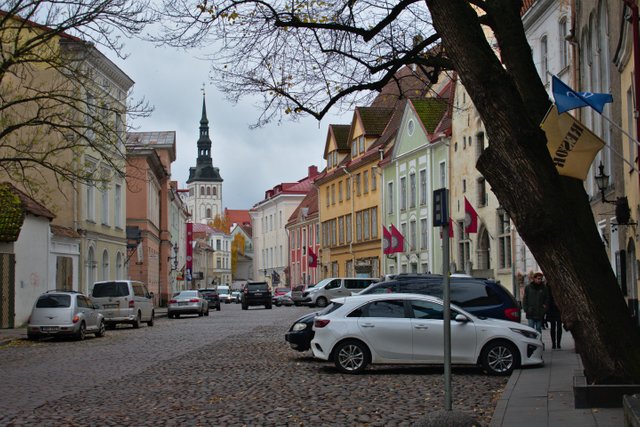
Niguliste Church
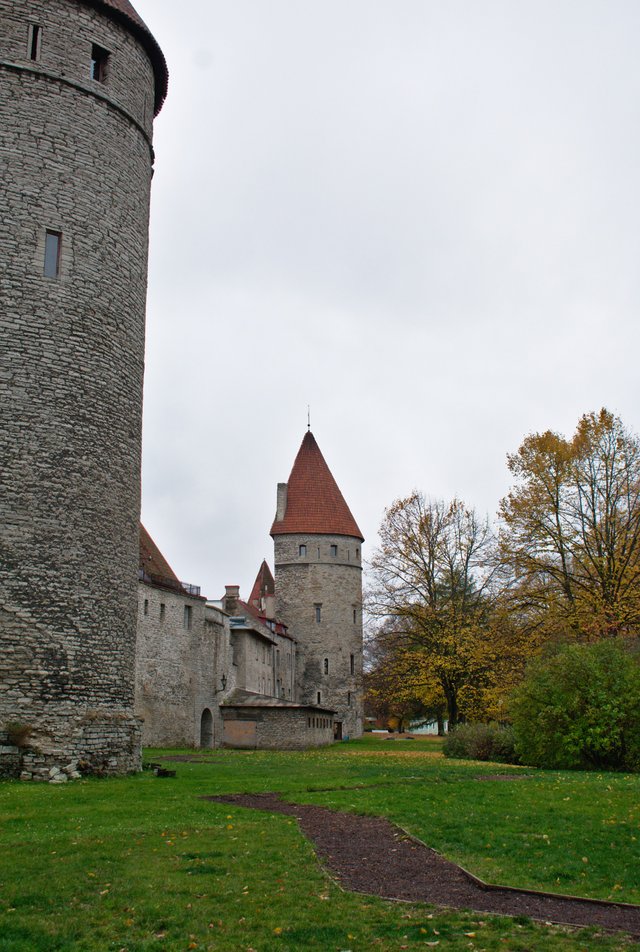
The park on the western side of the Old Town
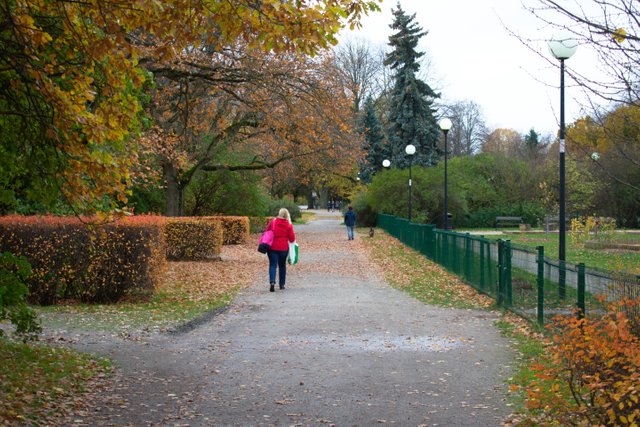
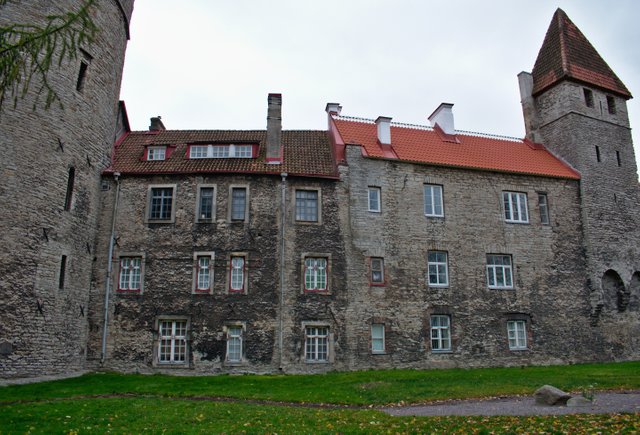
The oldest parts of the wall were over 800 years old. Living in an 800-year-old must be something of a rarity.
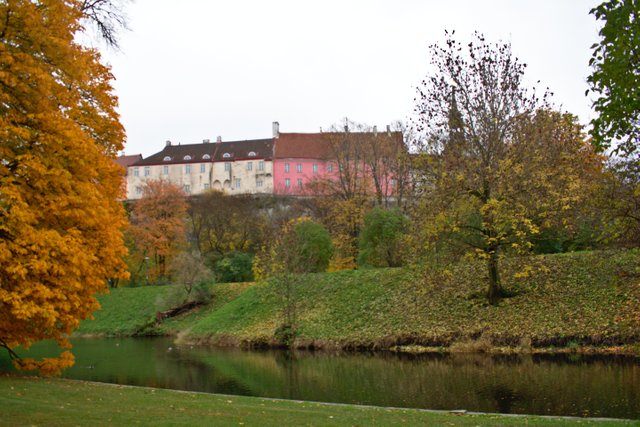
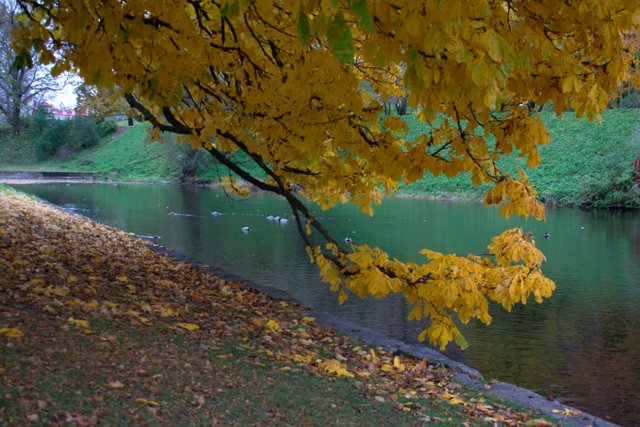
Those colors are stunning!
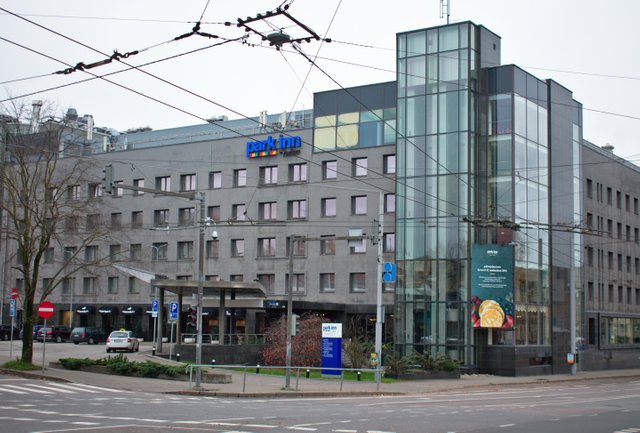
Our hotel Meriton Park Inn. My wife and daughter wanted to rest but nothing could keep me away from shooting more photos, so I went to Toompea Hill and the market on the other side of the Baltic railway station.
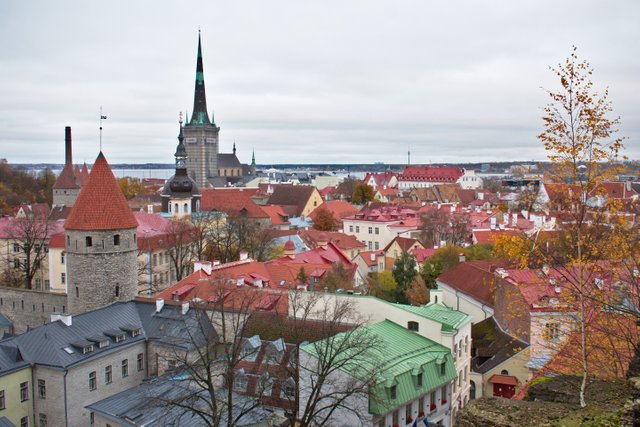
This was taken from one of the observation platforms on the north side of Toompea Hill. The large church is Oleviste Church. It was the tallest building in the world in the 15th and the 16th century.
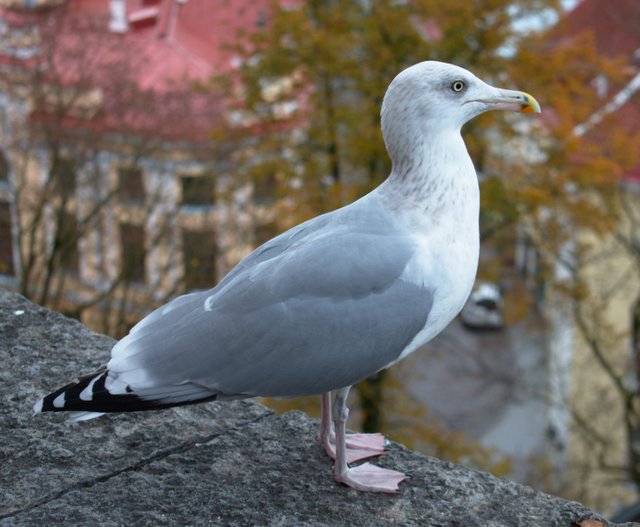
If someone tells you pigs can't grow wings and fly, show them this. These gulls were massive. What they do all day every day is eat what's left over from the tourists.
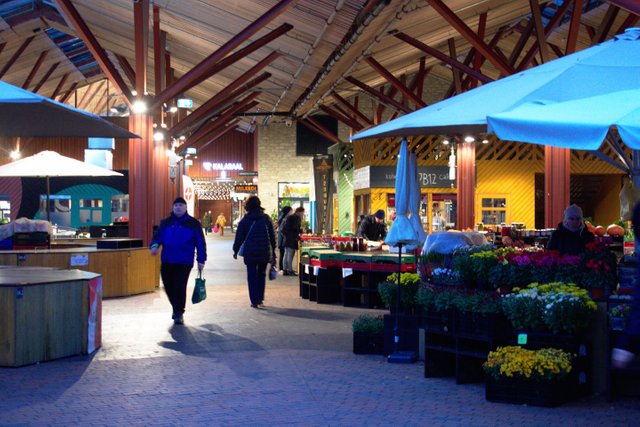
The market adjacent to the Baltic railway station.
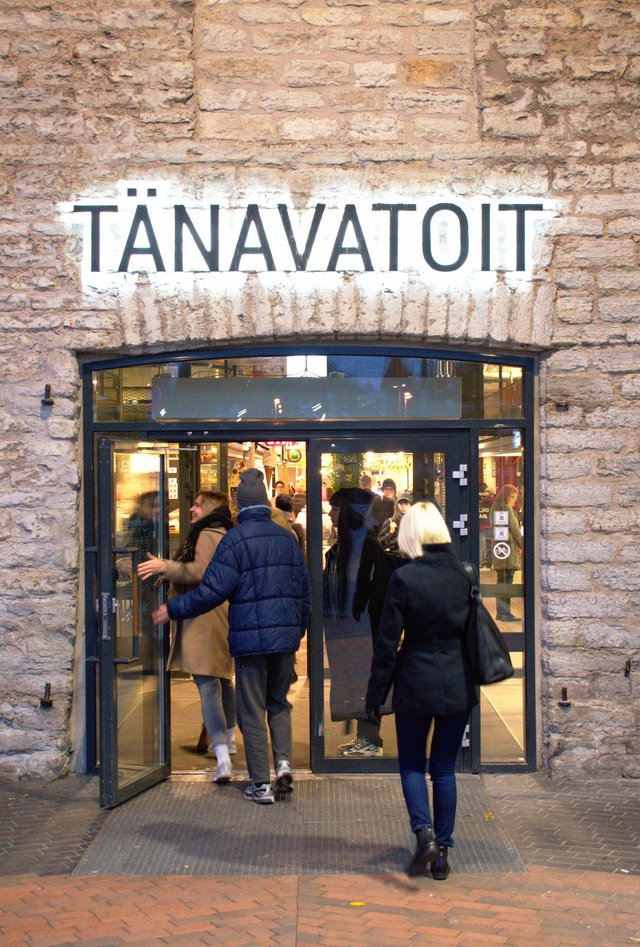
An entrance to the shopping mall
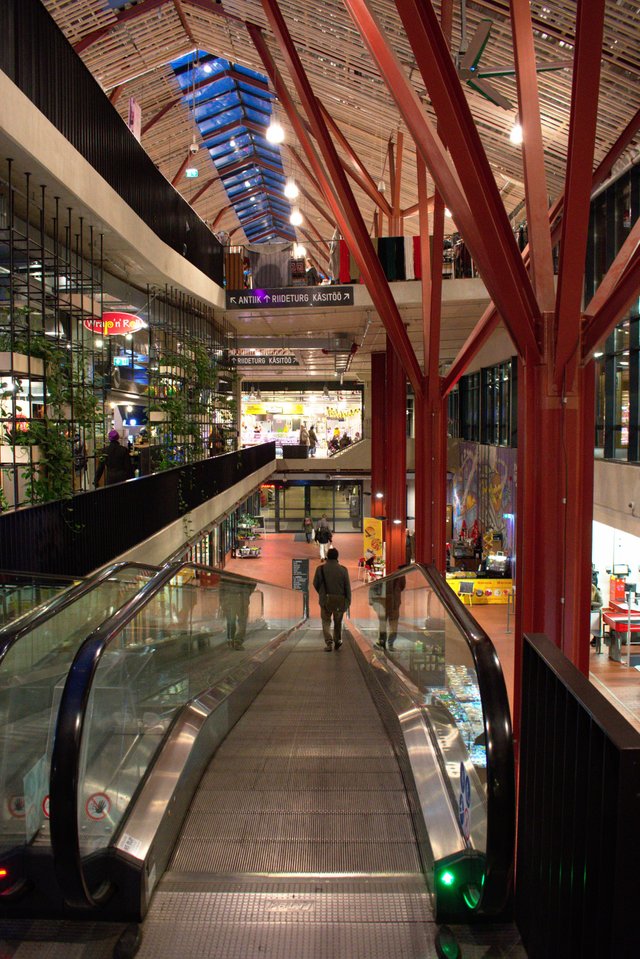
Looks quite stylish
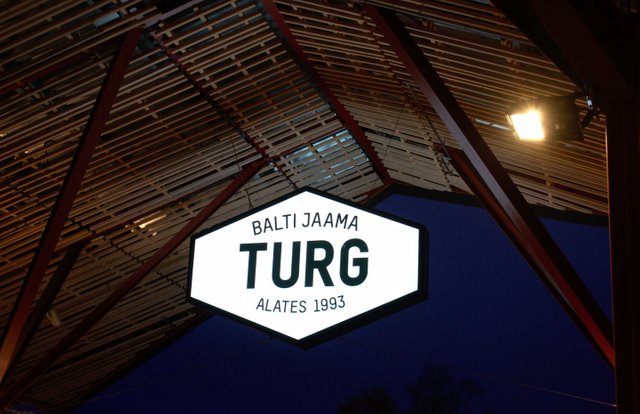
Baltijaama = Baltic station. Turg = market.
Estonian is the second closest linguistic relative of Finnish. The closest is Karelian spoken in the autonomous republic of Karelia in Russia. Estonian and Finnish are mostly mutually unintelligible. There are too many unfamiliar words. If you are a native speaker of Finnish, you can read an Estonian text and think you understand until you find that you don't.
Let's try:
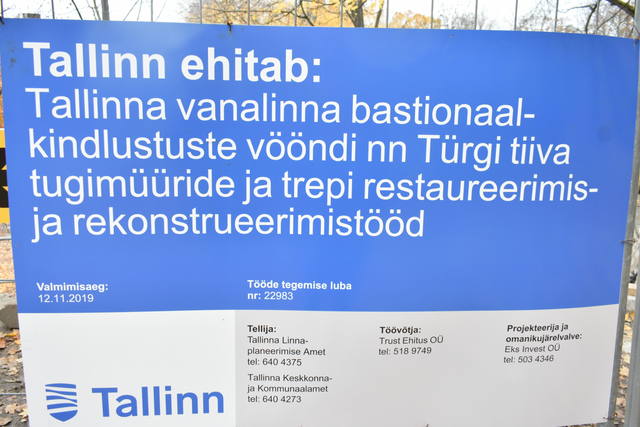
My attempt at translating this without using Google or other means of help:
"Tallinn renovates(?):
The vööndi (?) of the bastion fortifications of the Old Town of Tallinn nn(?) Turgi tiiva (I have no clue as to what that means)
tugimuuride (the base wall) ja=(and) trepi(?) restauration and reconstruction works"
Valmimisaeg (=completion time/date)
Tööde tegemise luba = Construction permit number
Tellija = tilaaja = orderer
Tallinna Linna-planeerimise Amet = The City Planning Office(?) of Tallinn
Toovotja(?) = Contractor(?)
Projekteerija ja omanikujärelvalve = I really have no clue other than that "valve" means "supervision".
Hi @markkujantunen!
Your post was upvoted by @steem-ua, new Steem dApp, using UserAuthority for algorithmic post curation!
Your UA account score is currently 4.093 which ranks you at #3618 across all Steem accounts.
Your rank has not changed in the last three days.
In our last Algorithmic Curation Round, consisting of 96 contributions, your post is ranked at #20.
Evaluation of your UA score:
Feel free to join our @steem-ua Discord server
Downvoting a post can decrease pending rewards and make it less visible. Common reasons:
Submit
The Estonian "Turgi" is the same as "tori" in Finnish))). Lucky you are to see Suomenlinna that close. I take ferries sometimes, but they've never approached the island.
Downvoting a post can decrease pending rewards and make it less visible. Common reasons:
Submit
I was using a 70-300 mm lens.
Posted using Partiko iOS
Downvoting a post can decrease pending rewards and make it less visible. Common reasons:
Submit